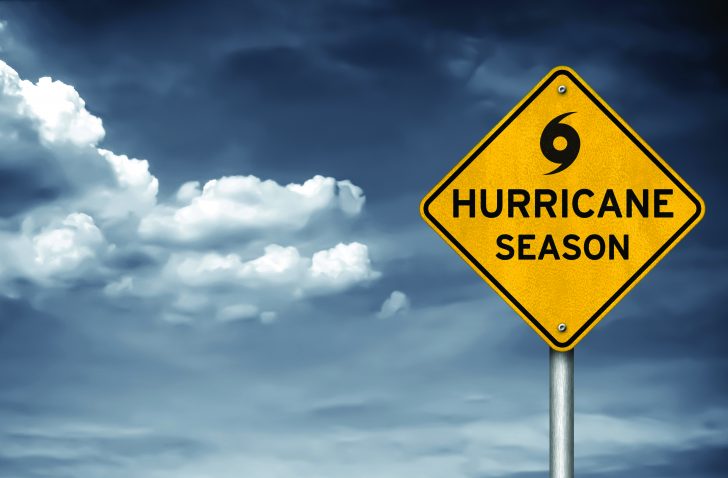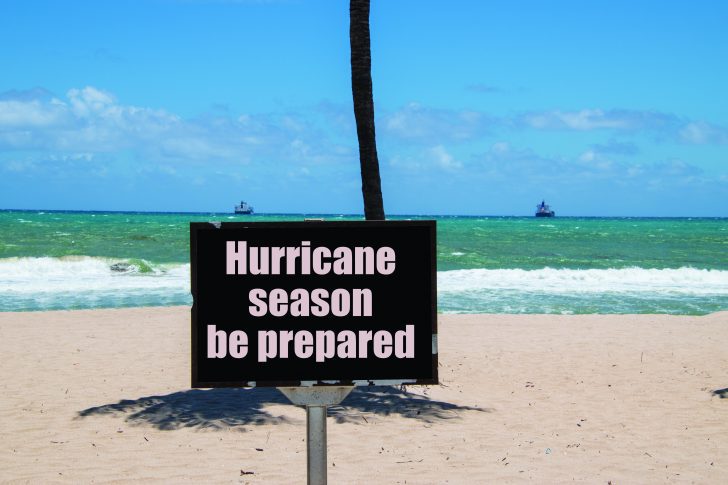By: Capt. Jim Kalvin
I generally write about Hurricane season in the June issue – but the Keewaydin Island Project that we’ve been discussing the past few months took precedence. Now that we have that endeavor well underway, it’s time to talk about the “H” word. You have to prepare in advance for the possibility of a summer storm, no matter where you keep your boat. Unless you are in a secure stack storage facility, you will be required to submit a “Hurricane Plan” to your insurance company. If you haven’t done that, pull your policy out, and read all of the fine print. If it requires you to submit a “plan” in advance, and you don’t – you may be surprised if you sustain a loss in a storm and file a claim for damages.
If you keep your boat at a marina or a public facility, read your lease carefully. Different facilities have different requirements, and if you are in default of your contractual obligations, you may wind up being responsible for much more than just your own vessel. Keep it on a trailer on your property or at an outdoor storage facility? If you do, you will likely still have the burden of filing a “plan” with your carrier. They will want to know how you’ll take precautions that may include removing any canvas or cushions, lashing antennas, removing electronics, pulling drain plugs, and making sure that batteries are fully charged and hooked-up to run bilge pumps. You can also include things like strapping the boat to the trailer and making sure that you’ll move it away from any overhead hazards (trees, electrical wires, etc.). Take pictures of your preparations before the storm hits and you can submit them with any claims afterward.
Make sure that you top off your fuel tanks, as electrical power and fueling facilities may be off-line for weeks. What fuel is available after the storm will be going to first responders and law enforcement. A lot of folks moved aboard their vessels after Irma because their home power was out and they could live in relative comfort aboard the boat. Having the fuel tanks full paid big dividends.
If you do keep your boat on a trailer, it can be a great source of spare gasoline after a storm. Forget about storing half a dozen 5-gallon cans around the house. Most boats over 20’ have significant fuel capacity – and you just have to have a safe way to transfer the gas into smaller cans for use with your generators or automobiles if our infrastructure is compromised.
On the water, make sure you have spare lines and fenders and that you have your favorite marine service company on stand-by if you need assistance preparing for a blow. Prior to Irma, we were busy a week ahead of the storm securing boats in boatlifts, installing spare cleats, and removing canvas in our clients’ absence. Don’t wait till the last minute – because a lot of other people will – and the crunch of service requests gets to be overwhelming. Remember that your boat and dock service-folk have their own properties to prepare.
The secret? Plan well in advance and execute your plan more than 3 days out from projected land-fall. Once your boat is prepped for the first storm, you likely won’t have to repeat the process – it will already be done. Plan for the worst and pray for the best. With any luck, we’ll have an un-eventful season.
Captain Jim Kalvin is a Native Floridian, a licensed USCG 100 Ton Master, and a local Marine Contractor. He can be reached at 239-280-6054, emailed at james.kalvin61@gmail.com, or through kcmcfl.com.



